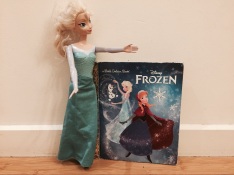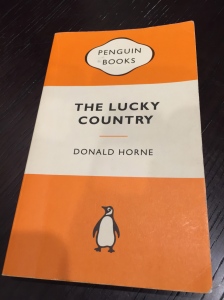 I’m a writer. There. I’ve said it. It’s taken me a while to get to this point.
I’m a writer. There. I’ve said it. It’s taken me a while to get to this point.
I used to think I had to be published to claim the title of writer. Once published, I told myself I wasn’t fair dinkum until I’d been paid for my work. When I got my first cheque, I decided short stories and articles weren’t enough; I needed to have an 80,000 word manuscript perched on the shelf of a big chain bookstore (which I don’t).
But today I’m coming out. This is—at least in part—thanks to the phenomenon that is Queen Elsa. Now I see you roll your eyes, but I beg you to hear me out.
Because I’m not just a writer. I’m also a working mum to two beautiful and busy children. Which absorbs a lot of my time. And by a lot, I mean, a LOT. Sometimes so much that I start to feel—my fingers tremble as I type the word—resentful. A feeling heightened by reading about other writers who, for whatever reason—they don’t have children, their children are grown, they have accommodating jobs or lots and lots of help— have bucket-loads of time to write. (This is, I realise, unfair on my kids, but spend a rainy day at home with a three year old who knocks back every suggested activity with “Boring!” and you will find yourself being irrational too).
Recently, The Guardian published famous writers’ rules for writing fiction. I baulked when I read American novelist, Richard Ford’s second rule: Don’t have children.
Indeed there have been moments—like on Mothers’ Day when my daughter threw a tantrum because my son vomited all over the new pyjamas she’d given me as a present—when I think perhaps Richard Ford is right. But in quieter moments when I’m not drowning in screams and vomit, this rule doesn’t ring true. Because the reality is that I have published more pieces in the three years since my daughter was born than in all the years prior. Nowadays, most of my writing is informed or influenced by my experiences as a mother. In truth, I am a more successful writer because of my children, not in spite of them.
Sure, I don’t have a lot of time, but my children have given me the gift of efficiency: when I have a spare ten minutes I don’t dilly-dally, I open my laptop and type. And while I would love to spend my evenings luxuriating in the prose of James Joyce and Ernest Hemingway, in reality, most nights I’m asleep by the shameful time of nine-thirty. So I have to take inspiration where I can get it.
Cue Queen Elsa.
For those few still unfamiliar with the 2013 Disney film, Frozen—perhaps you don’t have children or you are expecting your first child or you are one of those extraordinary parents who have resisted the pressure/curiosity/ temptation to see the mammoth hit—Elsa is the latest large-eyed, small-waisted version of Hans Christian Anderson’s Snow Queen.
In spite of her predictably impossible figure, she is a somewhat unique Disney heroine. For one thing she doesn’t pine for a prince. For another thing, she is deeply flawed; suffering from what some psychiatrists might call an avoidant personality disorder. (In a nutshell: she has fears—predominantly of social situations—and in order to minimise those fears, she avoids social situations altogether. Her parents are largely to blame, constantly reciting the rather disturbing mantra of: “Conceal it. Don’t feel it. Don’t let it show.”)
Pretty deep so far, huh?
It is really only once Anna, Elsa’s estranged sister, makes the ultimate sacrifice, that Elsa realises the error of her ways. Her parents were wrong. Concealing her powers only made her fears worse. She needed to confront her anxieties, embrace the very powers that made her different.
These are, I believe, good messages for young boys and girls—and writers facing a crisis of confidence, like myself—to hear. I, for one, am going to try not to live my life by fear and resentment, but by openness and love. And hopefully, in the process, like so many before me, I will prove Richard Ford wrong.

